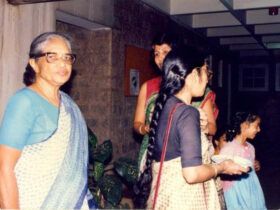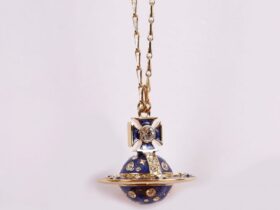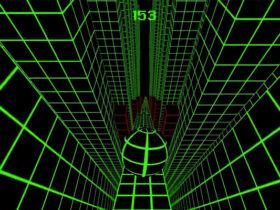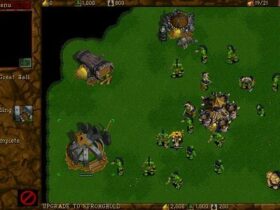In today’s gaming culture, opinions are as plentiful as they are diverse. With countless platforms, franchises, and indie titles jostling for a position in the crowded marketplace, debates are inevitable. One sentiment, however, seems to stand out more than others: “Nintendo Sucks.” This claim has circulated for years, echoing in forums, social media, and even among some mainstream critics. But how valid is this statement? This article aims to debunk the myth that “Nintendo Sucks” by examining its history, its contributions to the gaming industry, and the unique experiences it offers players worldwide.
Historical Context
Nintendo, originating in 1889 as a playing card company, has an illustrious history. Over the past century, they’ve transitioned from handmade cards to beloved video game consoles and characters. Critics of the company often overlook this history, failing to acknowledge the evolution of Nintendo from its humble beginnings to a global powerhouse in the gaming industry.
From Playing Cards to Pixels
Nintendo’s foray into the video gaming world began in the 1970s, a time when the industry was still in its infancy. By the 1980s, with the introduction of the Nintendo Entertainment System (NES), they effectively saved the home console market after the video game crash of 1983. Without this intervention, the landscape of gaming could have been drastically different. Those who argue “Nintendo Sucks” seldom consider the company’s foundational role in stabilizing a nascent industry.
Innovative Contributions
When we think of video gaming innovation, Nintendo is often at the forefront. From the Game Boy’s portable gaming revolution to the Wii’s introduction of motion controls, Nintendo has consistently broken the mold.
Motion Controls and Beyond
The Nintendo Wii, released in 2006, became a household name not just for dedicated gamers but for families, seniors, and casual players. The console’s motion controls were a game-changer, bringing a new dimension of interactivity. This innovation inspired other companies to explore similar avenues. Dismissing Nintendo’s pioneering role in this area is a significant oversight.
Beloved Franchises
“Mario,” “Zelda,” “Metroid,” “Pokémon.” These names are synonymous with gaming, and they all hail from Nintendo’s creative vault. Each franchise has offered players unique worlds, challenging gameplay, and memorable stories.
Legacy of Iconic Characters
Detractors often target Nintendo for relying on “the same old franchises.” However, the consistent quality and reinvention within these series are unparalleled. Super Mario Odyssey and The Legend of Zelda: Breath of the Wild, for instance, were not just rehashes but reimaginings, providing fresh experiences even for seasoned players. Such dedication to innovation within existing franchises is a testament to Nintendo’s commitment to excellence.
Fan Engagement and Community
Nintendo has cultivated a dedicated fanbase, passionate about their products and characters. Events like the Nintendo Direct presentations and global competitions foster a sense of community.
More Than Just Games
Nintendo’s community events and initiatives, such as the Splatoon World Championships or Super Smash Bros. tournaments, highlight the company’s dedication to its fans. These events bring players together, celebrating not just the games but the shared experiences and memories. This level of fan engagement is rare, and to ignore it in criticisms is to miss a significant aspect of Nintendo’s ethos.
Criticisms Addressed
While it’s valid to critique any company, the blanket statement “Nintendo Sucks” lacks nuance. Yes, Nintendo has had its missteps—the Virtual Boy or the initial struggles of the Wii U come to mind. However, these blunders were learning experiences that led to future successes.
Learning from Mistakes
Every company has its highs and lows. For Nintendo, its ability to adapt and learn from its mistakes sets it apart. After the lackluster reception of the Wii U, they came back strong with the Nintendo Switch, a hybrid console that has since dominated the market. Such resilience in the face of adversity speaks volumes about the company’s dedication to its fans and its vision.
A Testament to Creativity
Nintendo’s track record is one steeped in creativity. From the whimsical worlds of “Kirby” to the innovative mechanics of “Pikmin,” they’ve demonstrated a commitment to fresh, imaginative content. These games not only captivate players but also inspire other developers to think outside the box.
Diverse Gaming Library
While known for family-friendly games, Nintendo’s library spans various genres. Titles like “Fire Emblem” cater to strategy enthusiasts, while “Bayonetta” offers mature audiences a thrilling experience. Their diverse catalog ensures there’s something for everyone.
Pioneering Handheld Gaming
The Game Boy, DS, and Switch showcase Nintendo’s mastery over handheld gaming. Each system revolutionized on-the-go gaming, providing quality experiences without compromising on content. Their dedication to this sector underscores their understanding of evolving player needs.
A Haven for Indie Developers
Nintendo’s eShop has become a haven for indie developers. Titles like “Hollow Knight” and “Celeste” found substantial success on the platform. By supporting indie games, Nintendo diversifies its offerings and nurtures budding talent in the industry.
Environmental Efforts
Nintendo’s commitment extends beyond gaming. They’ve undertaken initiatives to reduce their carbon footprint, use sustainable materials, and promote eco-friendly practices. Such endeavors underscore their responsibility as industry leaders.
Collaborations and Crossovers
Nintendo’s collaborations, like “Mario + Rabbids Kingdom Battle,” highlight their willingness to experiment and work with other brands. These crossovers not only delight fans but also pave the way for innovative gaming experiences that blur franchise boundaries.
Conclusion
It’s easy to get caught up in the whirlwind of opinions and hot takes in today’s digital age. The claim “Nintendo Sucks” is catchy, provocative, and, to many, deeply flawed. By understanding Nintendo’s history, acknowledging its contributions, and appreciating its fan engagement, it becomes clear that this company has not only shaped the gaming industry but continues to enchant players of all ages. Before jumping on the bandwagon of criticism, it’s crucial to delve deeper, understand nuances, and appreciate the legacy and impact of a company like Nintendo.



































